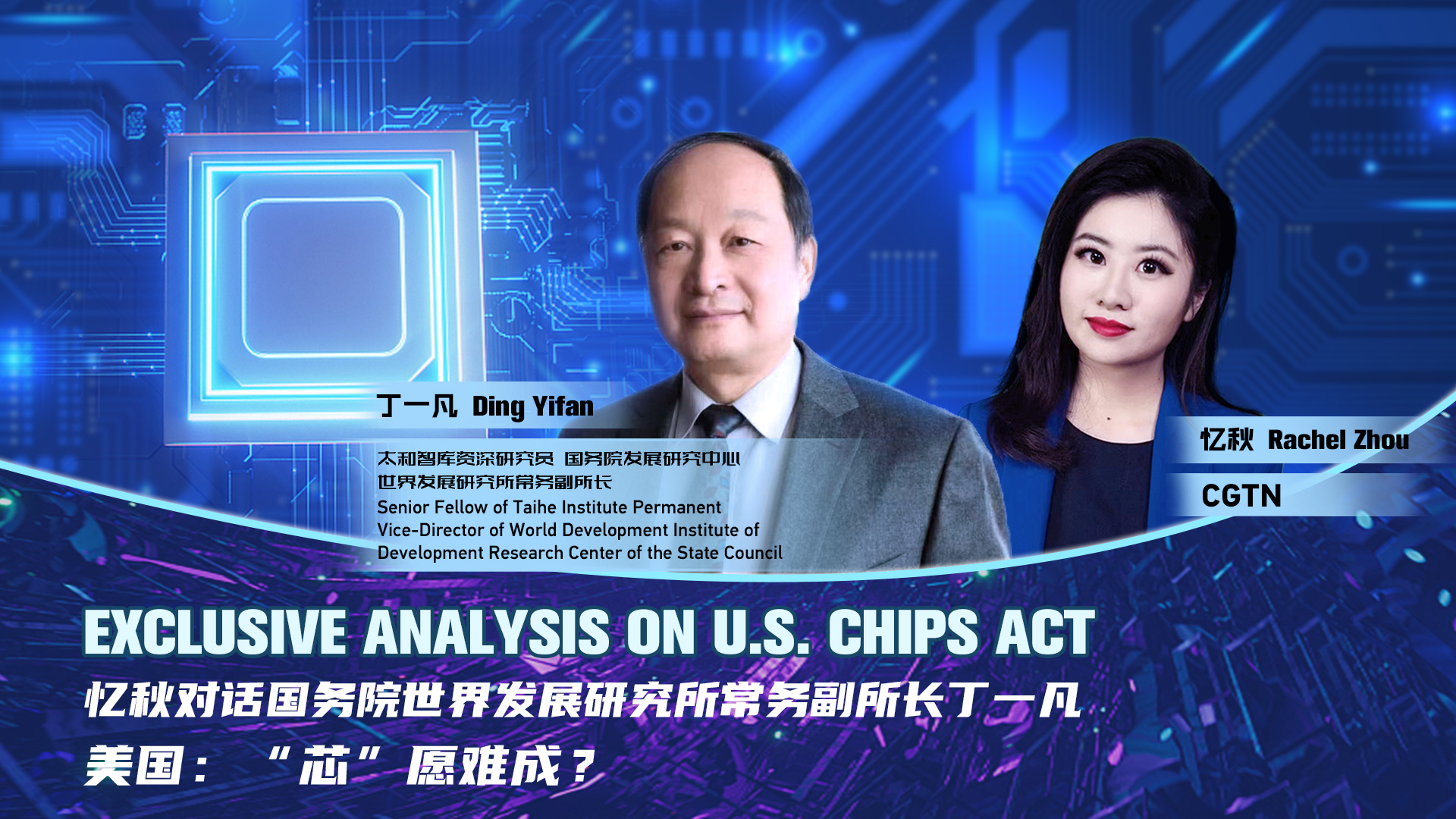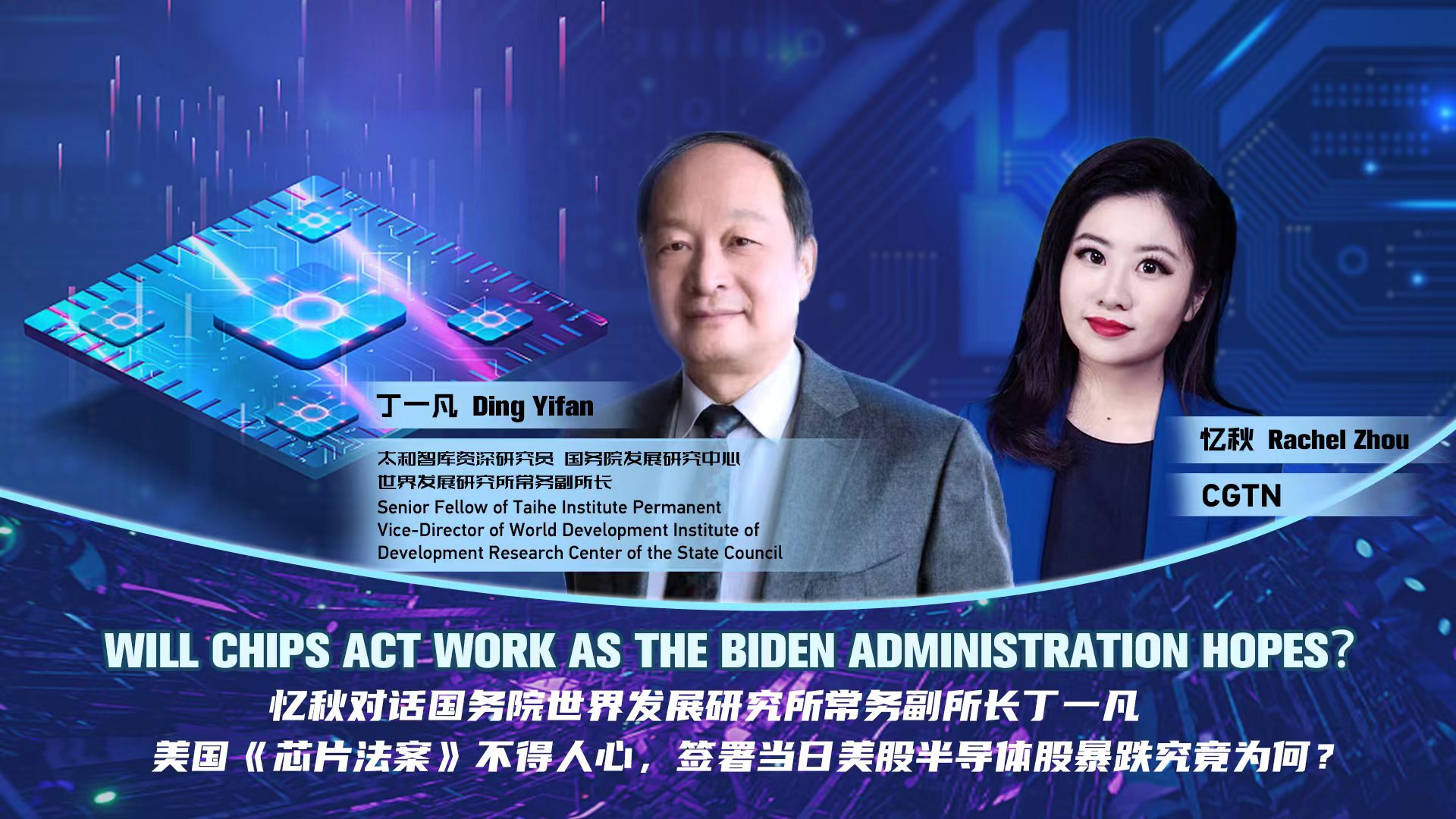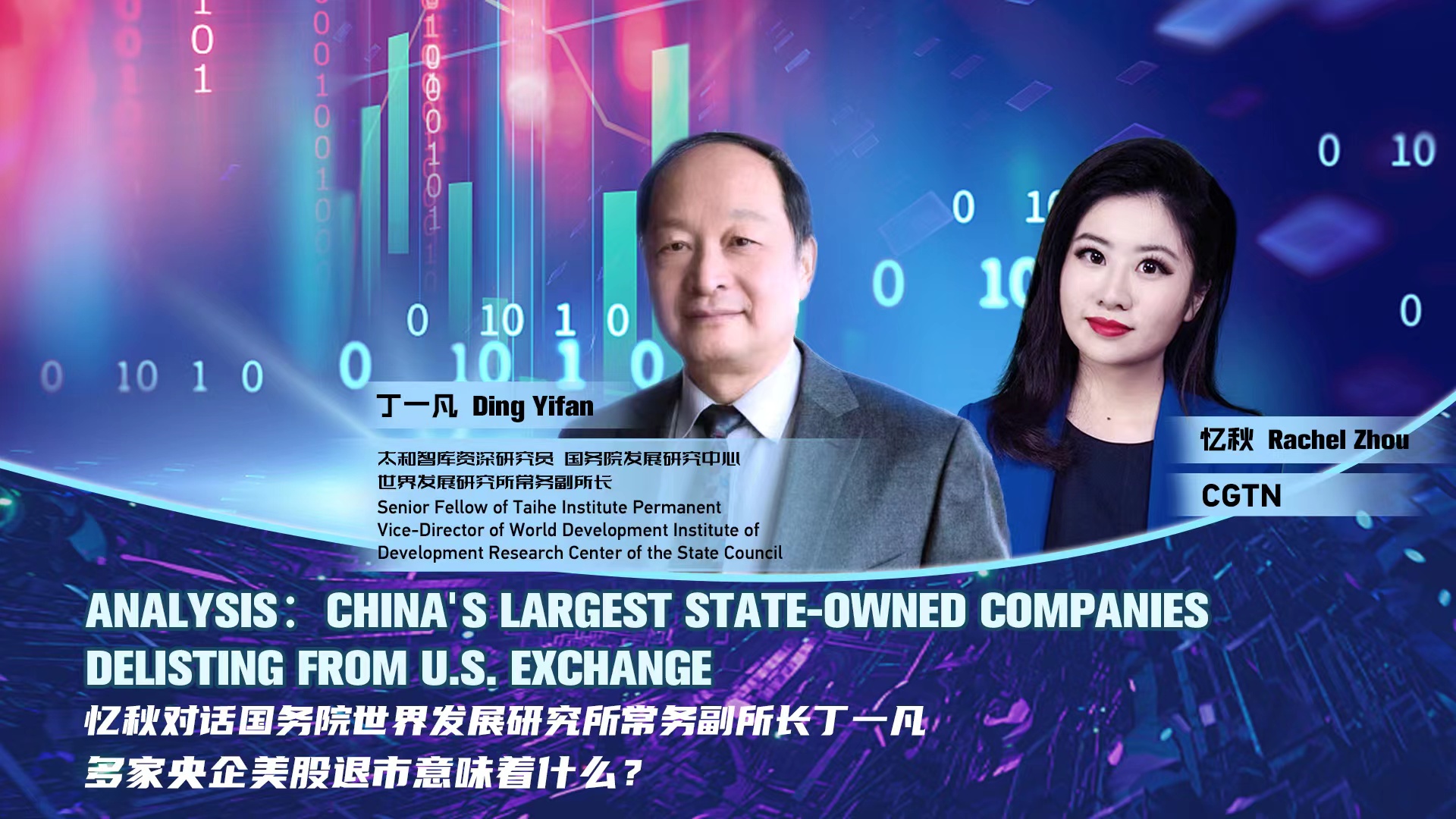"A once-in-a-generation investment in America itself, a bill that will help win the economic competition of the 21st century." Those ambitious words are actually quotes by U.S. President Joe Biden when recently signed the Chips and Science Act.
However, will the act work for the U.S. chip industry in the way Biden expects?
Let's take a look at the legislation. It provides $52 billion from U.S. taxpayers in subsidies to the U.S. semiconductor industry, 25 percent investment tax credit and guardrails to restrain China's chip development.
Long story short, it forces chips manufacturers to take sides amid a global free market.
So, is the U.S. the only winner from the bill? Will it bring chaos to the global industrial chain? What impact will it have on China and how will China deal with it? Today we invited Ding Yifan, senior fellow at Taihe Institute and permanent vice-director of the World Development Institute of the Development Research Center under the State Council, to analyze behind-the-scene secrets of the Chips Act. Here are his thoughts:
16:49

According to Ding Yifan, the Act will have a negative impact on U.S. companies as well. On the day of signing, U.S. semiconductor stocks plummeted. NVIDIA fell by 4 percent. Intel fell by 2.4 percent, that is the lowest since September 2017. The semiconductor industry relies on global cooperation, is it realistic for the U.S. to keep manufacturing at home and seek independence in the industry? Can it really help the United States to fundamentally solve the supply chain crisis? Will the bill work as the Biden administration hopes? Take a look at this video:
03:24

Ding also gives his answer on impacts this bill have on the semiconductor industry in the Taiwan region. Recently, U.S. House Speaker, Nancy Pelosi met with the president of semiconductor manufacturing company TSMC, during her visit to Taiwan region. The bill is expected to lead to the building of a TSMC factory in Arizona. But TSMC says that the 5-nanometer process wafer factory does not use its latest technology. Moreover, the founder of TSMC, Zhang Zhongmou, recently said that the United States lacks chip manufacturing talents and the cost is 50% higher than that in Taiwan, it is expensive, wasteful and useless. Ding Yifan's thoughts:
02:34

Apart from the Chips Act, another thing that has caught public attention about Chinese companies in the U.S. is that five of China’s largest state-owned companies including PetroChina, Sinopec and China Life Insurance have announced plans to delist from US exchanges. Ding Yifan analyzes for us the reasons behind it and the impacts on other Chinese companies listed on U.S. exchanges? His thoughts:
02:09


